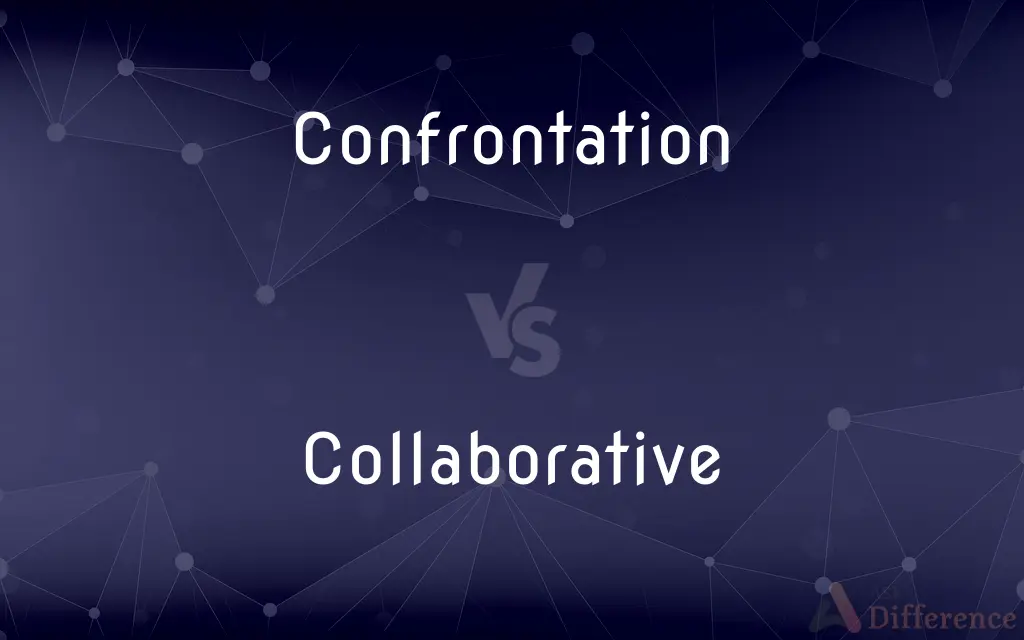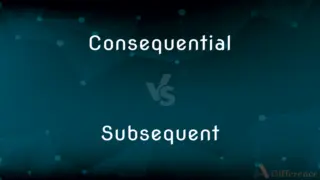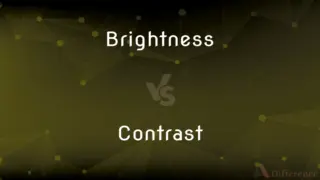Confrontation vs. Collaborative — What's the Difference?
By Tayyaba Rehman & Maham Liaqat — Updated on April 16, 2024
Confrontation involves direct engagement in conflict, often with opposing viewpoints, while collaborative approaches seek joint solutions, emphasizing teamwork and mutual benefit.

Difference Between Confrontation and Collaborative
Table of Contents
ADVERTISEMENT
Key Differences
Confrontation is characterized by a direct and assertive approach to conflict, where parties involved express and defend their differing opinions or interests, often resulting in a win-lose scenario. This approach is typically used when an individual or group needs to assert a position strongly and uncompromisingly. In contrast, a collaborative approach is based on cooperation and the idea that all parties can work together to achieve a solution that benefits everyone, often leading to a win-win outcome.
Confrontational strategies can be effective in situations where decisive action is necessary, such as legal disputes or competitive business environments. However, these strategies may also escalate conflicts or damage relationships if not managed carefully. On the other hand, collaborative strategies are designed to build or enhance relationships by integrating diverse viewpoints and finding common ground.
While confrontation often requires a robust and sometimes aggressive stance, collaboration involves open communication, trust, and respect among all participants. Collaborative efforts are especially beneficial in settings where ongoing relationships are important, like in workplaces or between business partners.
The outcomes of confrontation can be immediate and clear-cut, providing a quick resolution to disputes. Conversely, collaborative outcomes might take longer to achieve but often result in more sustainable and satisfactory solutions for all parties involved.
In terms of emotional impact, confrontation can lead to feelings of tension and stress among participants, whereas collaborative processes are more likely to promote a sense of community and shared accomplishment.
ADVERTISEMENT
Comparison Chart
Approach
Direct and assertive
Cooperative and integrative
Outcome
Often win-lose
Typically win-win
Strategy
Suitable for urgent or decisive actions
Effective in building solutions and relationships
Communication
Can be closed, with a focus on arguing points
Open, with a focus on understanding and integration
Emotional Impact
Can increase stress and tension
Promotes trust and reduces conflict
Compare with Definitions
Confrontation
A direct engagement in conflict over differing views.
The manager's confrontation with the employee about tardiness aimed to immediately address the issue.
Collaborative
A method that involves working together to achieve common goals.
The team used a collaborative approach to incorporate everyone's ideas into the project.
Confrontation
Suitable for legal or competitive scenarios.
Lawyers often use confrontation in court to represent their client’s best interests.
Collaborative
Encourages mutual respect and trust.
Their collaborative effort on the community project built a strong, respectful partnership.
Confrontation
Can lead to quick resolutions.
The confrontation at the meeting expedited the decision-making process.
Collaborative
Ideal for long-term and sustainable outcomes.
Collaborative agreements in business often lead to successful long-term partnerships.
Confrontation
May escalate tensions if not managed well.
The public confrontation between the two politicians heightened the campaign's tensions.
Collaborative
Seeks to integrate diverse viewpoints.
Collaborative problem-solving sessions are held to find a consensus among all stakeholders.
Confrontation
Often used to assert a position or right.
In negotiations, confrontation can clarify the non-negotiable terms.
Collaborative
Fosters a supportive and open environment.
Collaborative leadership styles help in building a transparent and inclusive office culture.
Confrontation
A hostile or argumentative situation or meeting between opposing parties
A confrontation with the legislature
Four months of violent confrontation between government and opposition forces
Collaborative
To work together, especially in a joint intellectual effort.
Confrontation
The act of confronting or the state of being confronted, especially a meeting face to face.
Collaborative
To cooperate treasonably, as with an enemy occupation force in one's country.
Confrontation
A conflict involving armed forces
A nuclear confrontation.
Collaborative
Of, relating to, or done by collaboration.
No need to thank me - it was a collaborative effort.
Confrontation
Discord or a clash of opinions and ideas
An age of ideological confrontation.
Collaborative
(management) An organized group of people or entities who collaborate towards a particular goal
Confrontation
A focused comparison
An essay that brought elements of biography, autobiography, and general European history into powerful, meaningful confrontation.
Collaborative
Accomplished by collaboration; cooperative; as, collaborative effort of industry and the universities. Opposed to competitive.
Confrontation
The act of confronting or challenging another, especially face to face.
Collaborative
Accomplished by collaboration;
Collaborative research
Confrontation
A conflict between armed forces.
Confrontation
Act of confronting.
Confrontation
A bold challenge
Confrontation
Discord resulting from a clash of ideas or opinions
Confrontation
A hostile disagreement face-to-face
Confrontation
The act of opposing groups confronting each other;
The government was not ready for a confrontation with the unions
The invaders encountered stiff opposition
Confrontation
A focussed comparison; bringing together for a careful comparison
Common Curiosities
How can one shift from confrontation to collaboration?
Shifting from confrontation to collaboration involves fostering open communication, seeking to understand the interests of all parties, and focusing on mutual gains.
Can collaboration be ineffective?
Yes, if group members lack commitment or if there is no clear leadership, collaboration can be inefficient or lead to compromised decisions.
What skills are important for effective collaboration?
Important skills include communication, conflict resolution, empathy, and the ability to integrate diverse perspectives.
Can confrontation be part of a collaborative process?
Yes, confrontation can be a part of collaboration if it involves open, constructive discussions where different views are respected and integrated.
What training can help manage confrontation effectively?
Training in conflict resolution, negotiation skills, and effective communication can help individuals manage confrontation constructively.
How does collaboration benefit organizations?
Collaboration can lead to more creative solutions, improved employee satisfaction, and stronger relationships, enhancing overall organizational performance.
How do collaborative efforts enhance problem-solving?
Collaborative efforts bring multiple perspectives to the table, leading to more comprehensive and widely accepted solutions.
Is confrontation always negative?
Not necessarily; confrontation can be a constructive way to address and resolve conflicts if managed with respect and clear communication.
Are there scenarios where confrontation is more suitable than collaboration?
Yes, situations requiring immediate, decisive action, such as in crisis management or when upholding essential principles or rights, may necessitate confrontation.
What are the psychological impacts of confrontation?
Confrontation can lead to increased stress and anxiety, especially if not managed constructively.
Share Your Discovery

Previous Comparison
Consequential vs. Subsequent
Next Comparison
Brightness vs. ContrastAuthor Spotlight
Written by
Tayyaba RehmanTayyaba Rehman is a distinguished writer, currently serving as a primary contributor to askdifference.com. As a researcher in semantics and etymology, Tayyaba's passion for the complexity of languages and their distinctions has found a perfect home on the platform. Tayyaba delves into the intricacies of language, distinguishing between commonly confused words and phrases, thereby providing clarity for readers worldwide.
Co-written by
Maham Liaqat













































